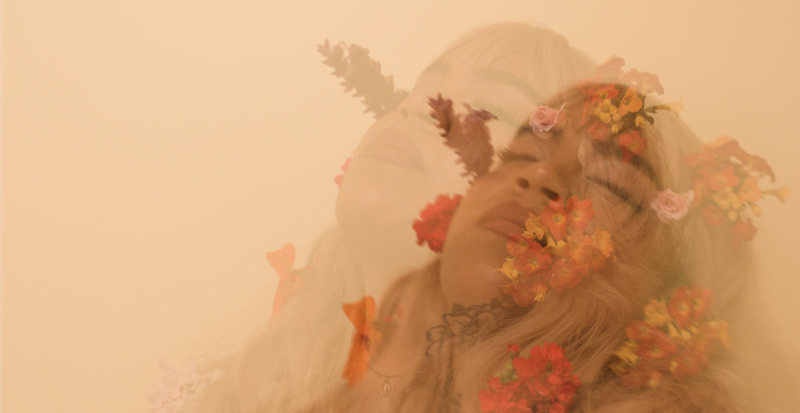
Xiomara‘s “Chardonnay” was my song this summer.
The track is an audio version of driving down Highway 1 at sunset. Smooth and melodic, with an earnest message to the listener– advising them to steer clear of that glass of wine they’re considering purchasing.
Xiomara says that “Chardonnay” is a metaphor about living within your means and “examining this desire for some far off things, some opulent thing, and getting real and saying nah I need to let that go and stay in the moment.”
That track is a single off her album, Sistas, a project that showcases Xiomara’s ability to move through a spectrum of musical genres, while telling stories that speak to the experiences of sistas in her life.
This week, we get a chance to talk to the East Bay musician about the influences she pulls from as an artist, and how she hopes to influence others with her work.
Below are lightly edited excerpts of my conversation with Xiomara about her thinking behind other songs off the album.
Pen: Another track… “Little Angel” gives me Sunday night oldies down the strip vibes. Just low and slow. What went into the thinking on it?
Xiomara: Little Angel is actually about children. I wrote it with the intention of others putting their own story on it and just making it a very universal love song. And so that’s the song intended for you – from person to person – to say, I’m thinking of you, you’re wanted here. You know, you’re accepted. It’s all love kind of thing. And it was inspired by a little girl that I was taking care of during the first part of the quarantine. A little sister, if you will…
Xiomara: There is a sista in every single song on the album and some of them know who they are and some of them don’t. And that’s what Sistas was: an exercise in… you know, being able to actually close out everything creativity and take time and not think about these dudes out here and not think about whether, you know what I’m saying, whether or not who’s talking, like man! I need the space to say this because I don’t have another space in this life. Like I don’t have another. There is no… There’s no better feeling… and this is vulnerable because I feel like, you know, it’s another sacred thing, there’s no better feeling than hanging out with a bunch of Black women.
Pen: Okay, so in a similar vein, your song “Mary New Religion” is about centering Black women and their safety. The lyrics that stand out for me are “tell me when you hear of a man that isn’t dangerous.”
Xiomara: I notice that a lot of particularly cis gender heterosexual men struggle with hearing feedback in regards to the behaviors that manifest due to this kind of patriarchal influence in society that we live in… Mary is about that. It’s about, listening to Black women, our experience, our stories and questioning the conditioning that exists within, no matter what your walk of life is.
Xiomara: Put frankly, I just wanted to talk my shit and make a point. Just because a man said it doesn’t mean it was bible. That’s what I’ve discovered about religion as well, is that when you believe in things you don’t understand, then you suffer!
Pen: Next… “The Rattler” when I hear it, it makes me think of red lipstick. Being played in my dark club in leather boots, you know, bring me into some of the influences that went into The Rattler.
Xiomara: Writing that song, it was early in the pandemic. Frankly, I was bored because I was isolated. And wanted to fall into a character that I can’t necessarily manifest, like going into the bar with the spiky heeled boots and the red lip… the concept was really just projecting a badass, rock and roll side of my artistry and myself and also digging into a little bit of trip-hop, Portishead kind of influences.

Rightnowish is an arts and culture podcast produced at KQED. Listen to it wherever you get your podcasts or click the play button at the top of this page and subscribe to the show on NPR One, Spotify, Apple Podcasts, TuneIn, Stitcher or wherever you get your podcasts.

